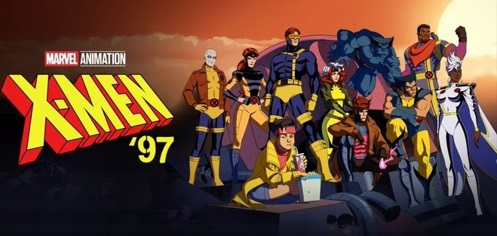English Dub Review: The Helpful Fox Senko-San “I Think You Just Want to Fluff More”
Maid cafe outfits? Yeah, sure. Go ahead. Just throw that one on the pile, too.
Overview
Shiro comes to visit Senko and Nakano at their apartment (originally barging in on ______’s apartment by accident.) Nakano is taking an easy day from work and asks the girls if they’d like to play video games. Shiro picks out “Super Fluff Bros. Melee” (literally) and plays with Shiro to their hearts’ content. Shiro quickly picks up on video game mechanics and uses her inner eye to read Nakano’s mind on how to beat him when they play for the last ohagi Senko made. She proudly eats it (despite being a cheater) and Senko attempts to cheer Nakano up by promising to make him sesame ohagi with the leftovers she has. Shiro wants the sesame ohagi as well, and Nakano promises to duel her for it if she plays the game without using her inner eye. Nakano still loses every match.
Senko (after learning Shiro barged in on Koenji’s apartment) drops some ohagi off to Koenji as an apology. Senko asks to go into Koenji’s apartment — presumably to explain the situation — but gets distracted by how disgusting her room is. Senko cleans it up on her own volition while Koenji works on her manga. As a token of appreciation (and for vaguely perverted reasons) Koenji gifts Senko with a maid cafe outfit. She wears it to impress Nakano — leaving him to express his appreciation for her presence.
Our Take
It’s very apparent, when watching certain pieces of media, that it was built to cater to a specific kind of person. In The Helpful Fox Senko-San’s case, it was a narrative that was invented for a reason that wasn’t storytelling.
The reason Nakano is such a painfully average dude is so that anime-loving male audience members can place themselves in his shoes. This is pretty much proven by the post-credits scenes where Senko/Shiro address the viewer in a Blues Clues style of speaking. The writers meticulously crafted the profile of the kind of guy who would want to be living with anime fox girls and brought him to life in the shape of this plain, non-whimsical man. This isn’t to mock narratives that are meant to target a certain demographic — in fact, self-insert narratives can be a great means of expression. It only becomes a problem when the narrative in question is perpetuating a particular kind of lifestyle that could be problematic. Looking at Senko and Shiro — two very whimsical, young-presenting girls — this doesn’t read well.
In many ways, Senko is like a manic pixie dream girl. She cooks, she cleans, she’s magical — and most importantly, she exists to take on a role wherein she tries to remedy Nakano’s life. This is a pretty precarious line to tread, because this trope always promotes the idea of a “quirky” girl who will sweep in and solve a male character’s problems, allowing him to take comfort in the fact that he never needs to learn how to be self-sufficient. Rather than seeing Nakano be complacent in his way of life, something that would help turn this around is if he slowly figured out on his own that he needs to fix his sleep schedule, or style his hair, or wear literally anything other than a T-shirt…or something. This isn’t to say characters aren’t allowed to help each other or learn from one another, but it’d be nice if a grown man didn’t need to be mommied like this. Otherwise, it sets the precedent that people like him are naturally helpless or incompetent — which isn’t true, and actually promotes the toxic notion that husbands “need to be taken care of” by the wife, without being able to reciprocate that emotional/physical ability to care in return.
Anyway, how about that scene with Koenji, huh? Pretty weird. Good thing it was only borderline illegal things that happened — like that photoshoot, and lines such as, “She’s like a lolita but legal! I’m mad jealous.”
Yeah, see, this is the other problem: having “adult” characters present as children? It’s like a Scooby-Doo villain wearing a cheap party mask, where the cheap party mask is “kawaii culture” and the villain underneath is “an explicitly legal way to pander to pedos.”



























Hi Ashley, thank you so much for reading and we love the feedback. Note that on that day we had 14th posts go up and only ten posts show on the front page, so it's possible the preview had already been archived by the time you got to it. One recommendation would be to add our RSS feed to your favorite news aggregator service like Feedly, this way you get all of the latest posts!